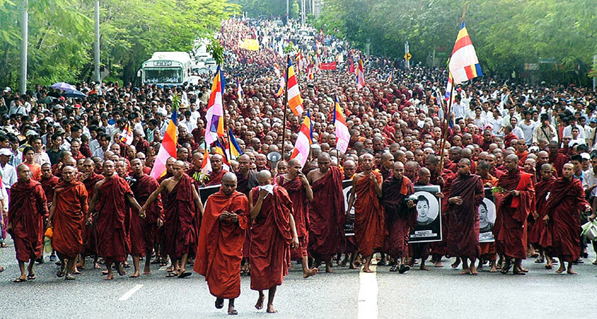Silencing the Sangha

According to Tin Soe, the editor of Kaladan Press, an ethnic Rohingya news agencey, similar cases are rampant in northern Arakan State, home to the Rohingya population, which has long been a victim of human rights abuses and persecution. He said local leaders have been told by USDP candidates that mosques will be built if they vote for the USDP, which has also been trying to win the votes of the state’s Muslim population with promises of identity papers and improved travel. “The USDP knows that if the religious leaders tell the people to support the USDP, most of the people from rural areas will follow the order,” said Tin Soe.
With respect to the role of religion and religious institutions in the 2010 election, the military regime appears to have closed tight any loopholes that assisted the NLD victory in 1990. And while going to great lengths to ensure that the opposition is severely restricted by the election laws pertaining to religion, it has allowed its proxy party, the USDP, to act illegally without repercussion.
This has left the opposition severely hampered in its ability to openly utilize the Sangha and other religious institutions to help it win this year’s election—either by winning seats in parliament or by discrediting the election through a boycott. But history has shown that the Buddhist monks and other religious leaders inside Burma are strong and resilient, and they are already finding ways to circumvent the election laws, such as by quietly supporting a boycott and by encouraging people who are forced to vote to cast their ballots for smaller democratic parties.
“We believe religion will still have a large role in the 2010 election,” said Nyo Ohn Myint. “Despite the regime’s best efforts, religion will always define Burmese politics.”
« previous 1 | 2 | 3 |
